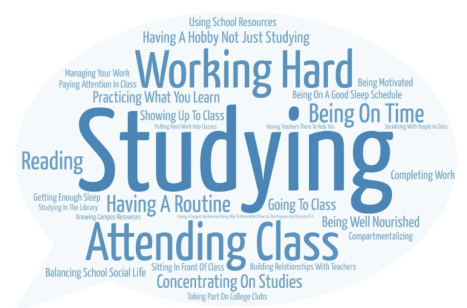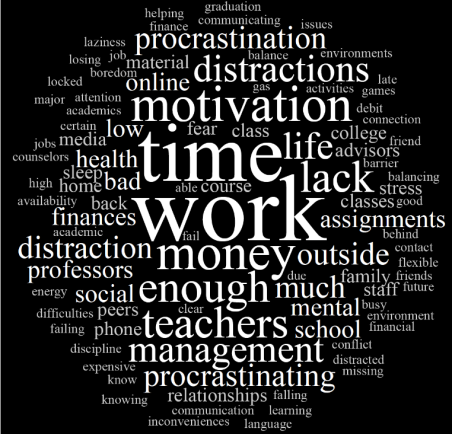Faculty at MCC engage with an informed improvement process that is meaningful to students and their instructional practice. This page highlights exemplary work among faculty at MCC.
In these videos, faculty from a variety of disciplines describe ways to evaluate student learning. Click on the three lines on the top rights side of the video to access the complete playlist.
Student Outcomes Faculty Showcases
The Student Outcomes Committe hosts a bi-annual event to showcase faculty assessment of learning in praxis. In these videos, faculty from a variety of disciplines present ideas about their assessment practice. Click on the three lines on the top rights side of the video to access the complete playlist.
- Library Assessment
- Presenter: Marjorie Leta, Library
In response to COVID, the MCC Libraries had to quickly convert and expand library services to a virtual environment. Now that we’ve settled into a new norm, the library is embarking on an assessment journey to determine the impact of library services and identify opportunities to improve library performance, and better align library services and resources to user needs. - SOC Listening Tour Qualitative Data Analysis
- Presenters: Brian Dille, Political Science, Dr. Jennifer Strickland, Center for Teaching and Learning, and Dr. Megan Garvy, Center for Teaching and Learning
The SOC team will share the insights gained from our recent listening tour of college departments. Explore what your colleagues think about assessing student learning, deciding what to teach, and SOC support. SOC listening tour presentation including qualitative anlsysis process video. - How to Use Canvas Anlytics to Monitor Student Success of Course Outcomes
- Presenter: Sara Sanders, Life Science
How do we know if the changes we make to our courses improving student learning? This presentation will provide an example of using Canvas data to make informed improvements in a course. Informed improvement can assure that the changes we are making do indeed make a difference in student success. - Sure, you taught it. But did they learn it? Placing the student at the center of the learning process.
- Presenter: Dr. Tawn Hauptli, Education Studies
The nature of teaching and learning has changed. Educators are no longer the “sage on the stage.” Teaching in the 21st century, especially in the midst of a pandemic, is challenging. But it has also presented us with incredible opportunities. This session will provide you with an introduction to a theoretical instructional approach to meet the needs of today’s learners. - Undergraduate Research as Alternative Assessment
- Presenter: Dr. Asmita Kane, Physical Science
As faculty, we teach and then assess students on course material. However, we don’t always recognize the extremely diverse array of students coming into community college classrooms: the spectrum of high school preparation, ethnic, social, and economic backgrounds is vast. That's why I believe in undergraduate research (UGR) as a type of assessment! - To Grade or Not to Grade?
- Presenter: Dr. Paulette Stevenson
Ungrading and grading contracts are all the rage these days, but what do these look like in practice? And how can they best help our community college students? Join Paulette Stevenson, a 2020-21 MILRF fellow, to learn about ungrading and grading contracts. - The "MOER" You Know
- Presenter: Seth Daugherty
Can a free, OER, online homework system really provide high quality assessment comparable to commercial homework systems? You bet! In many ways, it is superior in terms of flexibility and customizability, and students don't need to purchase access codes. Come see how math faculty, and now faculty from other departments, are implementing MOER to assess and promote learning. - Sociology students and 5th grade recess: Are they really serving and learning?
- Presenter: Paul Harasha
Fifteen students in an Introduction to Sociology class spend Friday mornings at recess with 5th graders at a Mesa Public School. Come hear about successes and challenges in assessing their learning and meeting course competencies. Paul will share ideas and suggestions for faculty to break down their classroom walls to explore innovative learning methods. - Research is Teaching, Research is Learning
- Presenter: Dr. Niccole Cerveny
Students should have the opportunity to learn through undergraduate research experiences (UREs). Students are often excluded from UREs until they have obtained deeper knowledge in a particular discipline. However, if students are engaged in interesting UREs, their desire to dive into the discipline is markedly increased. For faculty, UREs have the potential to reinvigorate teaching and connection with new ideas in our chosen discipline through sharing with novice learners. - Human Subjects Research Review at MCC: The Student Process
- Presenter: Dr. Carolyn St. Peter
Have you considered implementing undergraduate research in your courses but don't know where to start? Does the process seem daunting, so you keep putting it off? Dr. St. Peter will share the review process for student research projects involving human subjects. She will also share resources to get you started on implementing this High Impact Practice designed to engage students in higher-level learning. - Using Chat GPT to Inform Teaching and Learning
- Presenter: Juliet Crocco
Juliet has been using AI tools to generate learning goals that relate to course competencies and create rubrics and scoring checklists that align with the learning goals. During the session, she will share information about the tools she uses, course planning process, and reflections about improving her practice based on student learning. - Packback Online Discussions for Improved Student Learning
- Presenter: Pamela Lizardi
Pam has been using Packback for years to increase student engagement in online discussions. During the session, Pam will describe her process to create student-centered discussions that measure learning and how the AI tools generates information based on the learning goals. Pam will also explain how the AI information informs her decisions about adding instructional materials to each class in a way that is responsive to student replies in the online discussion forums.
Listening to Student Voices: College Success
The Foundations Action Team is made up of faculty and staff that explore and share innovative practices and advocate for student groups including students who are new to college, enrolled into foundational courses, first generation, returning adults, and STEM majors. In 2022, a subteam of the committee engaged with a research project to listen to student voices and the ways that students describe college success. A few of the featured images from the data anlaysis are displated below.
What (if anything) is contributing to your success in college? (process codes)

What (if anything) is hindering your success in college? (in vivo codes)

This complete presentation documents their process to develop the research project, implement it, collect data, analyze the data, and share the results. These results were shared with the larger Foundations Team to inform their work with students inside and outside of the classroom.

